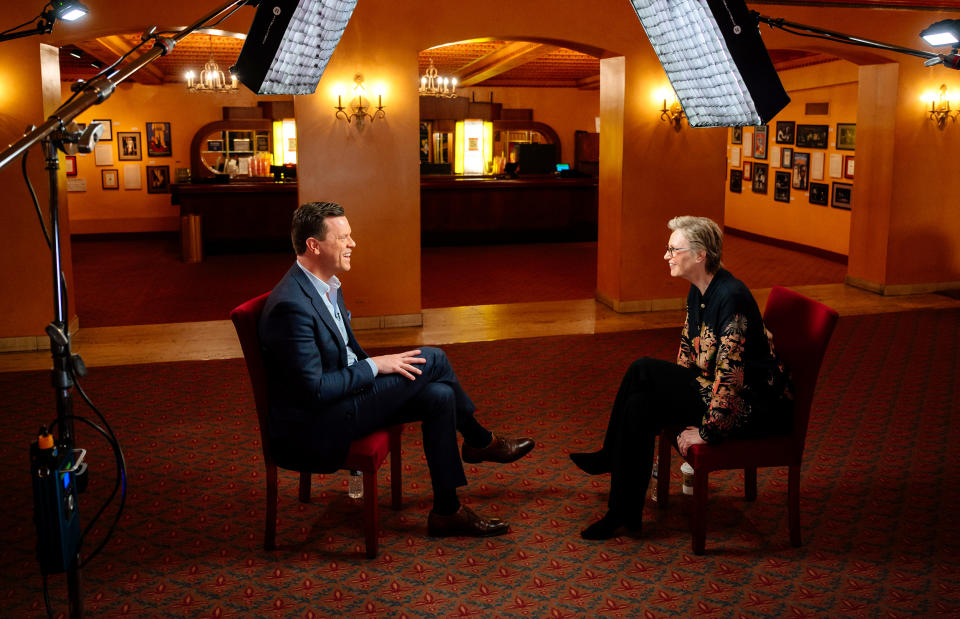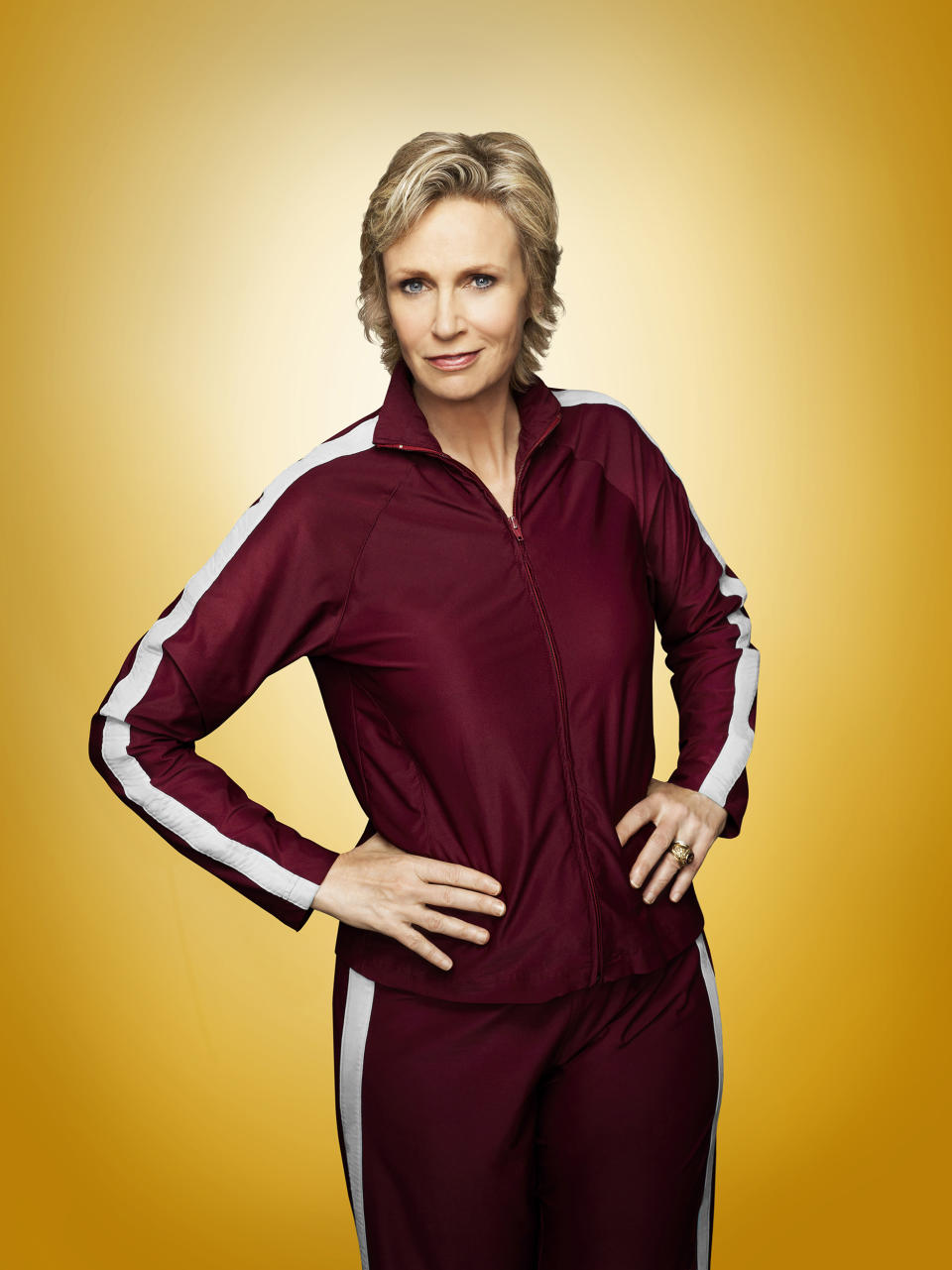Jane Lynch opens up about wedding to Jennifer Cheyne: ‘A really beautiful thing’
- Oops!Something went wrong.Please try again later.
- Oops!Something went wrong.Please try again later.
Jane Lynch has won Emmy Awards, created iconic roles and is now taking Broadway by storm in the historic revival of “Funny Girl,” but perhaps at the top of the list of exciting life moments was the 61-year-old's wedding to partner Jennifer Cheyne.
During a recent Sunday Sitdown with TODAY’s Willie Geist, Lynch opened up about her marriage and the unexciting way she popped the question to her longtime partner.
“Jennifer and I have been together forever and we were shopping for insurance for her and I said, ‘Let’s just get married.’ So that’s how romantic it went," Lynch revealed.
While the proposal was more of a practical matter, Lynch said that the wedding was a “really beautiful thing.”
“We live in Santa Barbara and we went to their courtyard, or courthouse, which is a beautiful old Spanish building,” she explained. “It’s a mission building. Her son, Harry became a minister with the Universal Life Church … So he married us. And it was just the three of us out in the courtyard at the courthouse. And it was lovely.”

Cheyne will, of course, be among the swarm of fans in the audience on April 24 when “Funny Girl,” which is currently in previews, officially opens. Lynch, who plays Rosie Brice in the highly-anticipated musical revival, spoke openly about the transition from rehearsals to performances with a live audience, explaining that the "electricity is palpable."
"And it changes everything," she added. "And it takes it from this kinda nice level where you are at rehearsal as you’re working stuff out to this glorious happening because you have that added element which completes the experience, which is the live audience.”
Lynch herself has been receiving plenty of love from the audiences during previews of the show, including thunderous applause each night as she steps onto the stage.
“It’s a lovely thing,” she said with a laugh. “But I always said to (director) Michael (Mayer), ‘Please don’t make too big of a deal out of this (applause break) because what if they don’t?’ And so we have this whole thing where I say my line and presumably, there’s applause. Then I have to walk down these stairs, these spiral stairs and if, you know, we’re hearing crickets, it’s gonna be embarrassing. But it happens every night. They applaud. And it’s lovely.”
Lynch added, “You stay in the world of the show, but it’s really a joy to hear how happy everybody is to be in the theater. And the minute the overture starts, people are going crazy.”

Before taking the stage as the supportive Rosie Brice, Lynch was better known for her villainous roles, including the iconic Sue Sylvester in "Glee" and a rival comedienne in "The Marvelous Mrs. Maisel." While that latter role won her an Emmy Award in 2019, Sue Sylvester was the one that helped Lynch break into the mainstream. Despite being one of the series' primary antagonists, fans couldn't help but love the wicked coach.
“Oh, she was so bad,” Lynch said of Sue. “She had no filter. Well, and also, she said things to shock, you know? She would come up with the darkest, most violent things to say and because she’s not Hannibal Lecter, you laugh.”
“Glee” aired from 2009 to 2015 and became somewhat of a phenomenon, but Lynch knew in the moment that there was something special going on. She explained to Willie, “I don’t know that the kids did so much ‘cause you’re so young and so much is being thrown at you. And especially in the beginning, it was so much work. But I had a sense. I was like, ‘Oh, my god. This is gonna take off.’
She likened fans of the show to fans of “Funny Girl,” adding, “It feels like the same phenomenon. It’s like people love this stuff. They love music. They love when a character raises their voice in song in order to express, which can only be expressed through song. It’s like they have to. The music has to come out of them.”
Related:

